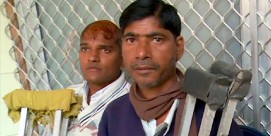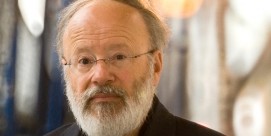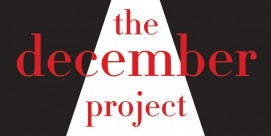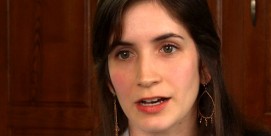In This Episode << SLIDE LEFT TO SEE ADDITIONAL SEGMENTS
The Aim of Health Care
Read an excerpt from TAMING THE BELOVED BEAST: HOW MEDICAL TECHNOLOGY COSTS ARE DESTROYING OUR HEALTH CARE SYSTEM by Daniel Callahan (Princeton University Press, 2009):
The aim of health care should be, within a finite life span, to help us to have a good chance to progress from being young to being old—but not to go from being old to being indefinitely older; to relieve us of our most burdensome physical and mental suffering—but not always fully or perfectly; to rehabilitate us as best it can if we are disabled—but to understand that some of us will live our lives with chronic illnesses and disabilities; and to help us achieve as pain-free and peaceful death as is possible—but knowing that goal will not always be possible. Medicine ought not to seek an indefinite extension of life or aim to enhance our nature beyond the ordinary standards of good health, or search out medical ways of excessively fighting our decline and frailties, many of which are now and always will be unavoidable. Just as death ought not to be taken as the ultimate enemy of human life, health should not be taken as the ultimate good.
 Daniel Callahan |
As Judith Feder and Donald W. Moran have observed, “To be serious about cost containment, it will be necessary to admit that containing costs will require affecting the decisions that individual Americans make every day in all the settings in which they make them.” Whether Americans can be brought to think differently about health, to expect less and to settle for less, and to be willing to forgo some health care they might like, or even need, for the sake of the public good, takes a utopian, or maybe a counter-utopian elixir of hope and imagination. I see no plausible alternative.
As individuals, we are in a position similar to our health care system problem if we do not learn to rein in our aspirations for perfect health, to live with some of our needs that might otherwise be medically dealt with, to run some risks with our health, understand that an elevated level of this or that reflects a possibility of harm only, not a death sentence, and to recognize (even if begrudgingly) that a cure of one of our otherwise lethal diseases will not save us from some other one. Cured diseases are always succeeded by a final and fatal disease. If we as individuals do not bring some greater realism to our health, some willingness to put up with our mortality and vulnerability, and the anxiety that goes with its recognition, then there is no hope that costs can be controlled, hardly any technologies that can be limited or denied.
There is, to be sure, an obvious objection to my line of thought here. Even if, as individuals, we limit our medical appetite, there is no guarantee that any money saved by our altruism will go to other more serious social or health needs. True enough, and that is one of the serious penalties for living in a society without universal health care and the circumscribed budget that should go with it. But it is also true, as we can see with voting, that it is a bad mistake to think that, with a large electorate, our individual votes are irrelevant. The danger is not that one vote will harm the election process. It is that, if everyone thinks that way, then the process will indeed be harmed. So, if only a few of us begin to change our views of health care, and then a few more, that might indeed make a difference.
My scenario may be fanciful, but as individuals we need an open discussion on what counts as good or bad choices, wise or imprudent ones, and our social obligations to our community as we make them. Such a discussion need not be, and ought not be, coercive. It might, however, help shape some rough consensus, moving us at least in the right direction There is an obvious truism, usually ignored in health care, that the collective, aggregate impact of our private choices can affect the public good. Hence, it is worth the effort to see if those private choices can be nudged in a helpful direction. That direction would be, following my finite model of health care, toward less, not more, and even much less.






